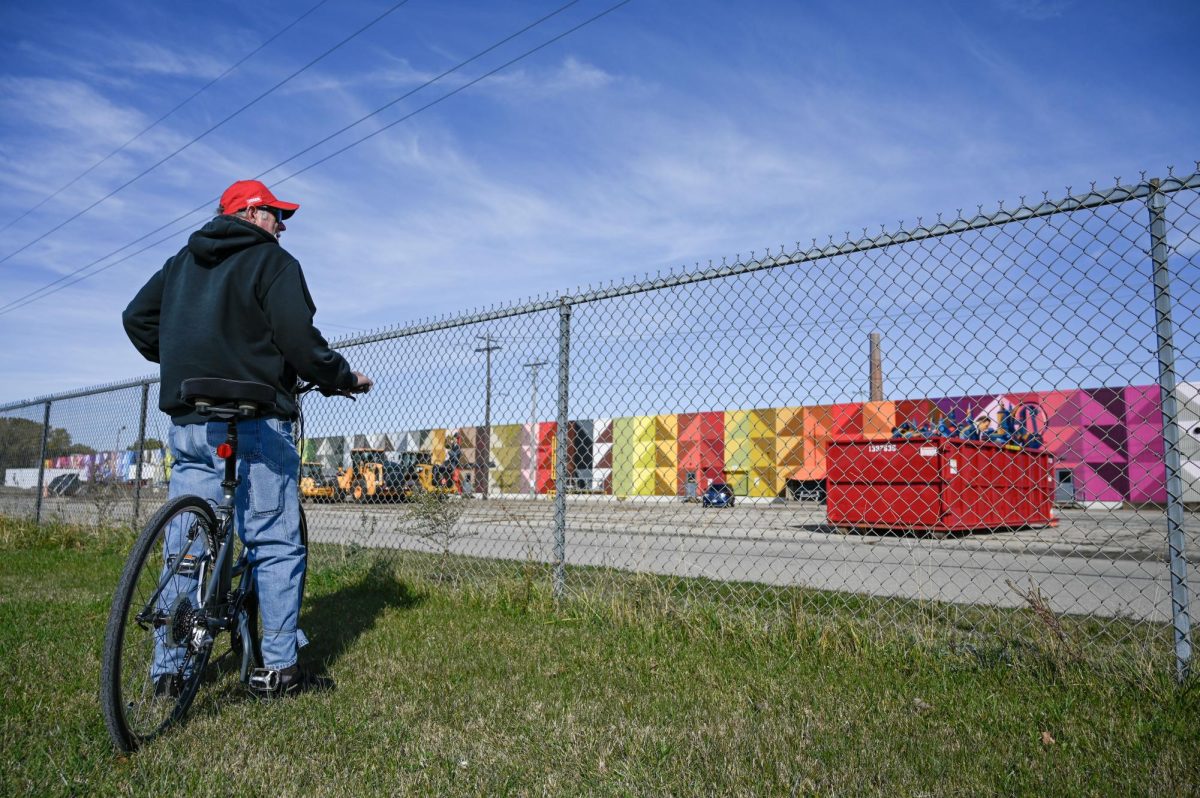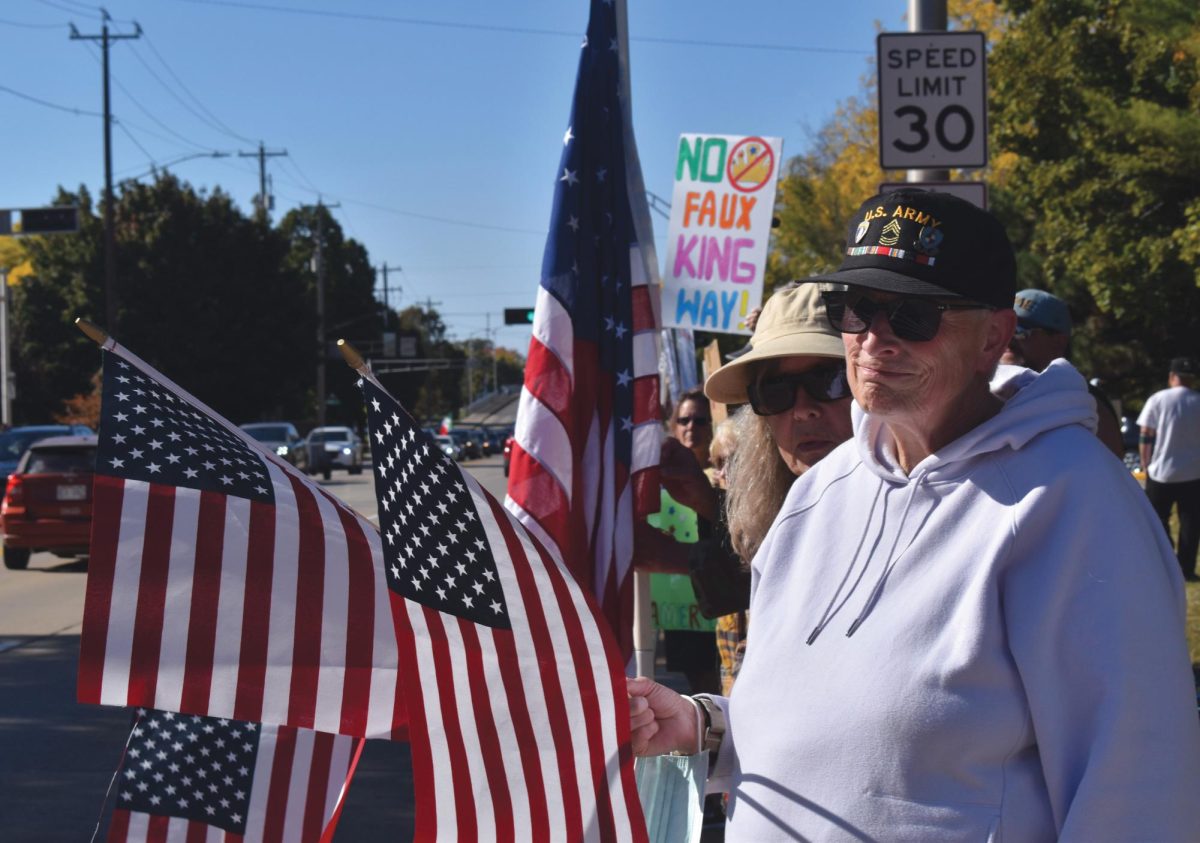[media-credit id=276 align=”alignnone” width=”300″][/media-credit]
The UW System passed a policy that would suspend two-time offenders and then expel three-time offenders on campus who “materially and substantially disrupt the functioning of an institution.”
According to a UWS press release, the purpose of the policy is “to communicate the Board’s commitment to academic freedom and freedom of expression as well as set expectations for those who violate those freedoms.”
Those expectations, however, are yet to be determined and Chancellor Andrew Leavitt said the University is going to look for some guidance as to what a disruption is.
“I think what it’s going to really center on is our ability to define what a disruption is,” Leavitt said. “But certainly we think anyone’s right to express their First Amendment right are important and that they should not be disrupted or shouted down.”
Leavitt said when protests cross over into disruption is where the issues will arise.
“It really depends on the nature of the disruption, and I can’t tell you what that is until it actually happens,” Leavitt said. “So again, that’s sort of the gray area …You don’t have the right to simply silence someone you don’t agree with. It’s just that simple.”
UWO senior and communications major Tyler Millard said he believes this policy is a good one to have in the UW System, so long as it is used correctly.
“I agree with the policy as long as it’s implemented correctly,” Millard said. “It’s kind of a gray area between what’s wrong and right … But I can also see it creating problems when you have a student who goes up and really disagrees with [a speaker].”
Leavitt said there’s a lot of ambiguity in deciding what a disruption is, but it’s a decision that he thinks will ultimately be decided by the courts.
“If someone were to be removed from school because of a disruption, they have recourse through the courts and other things,” Leavitt said. “We would have to apply the policy to the best of our ability and then what the students or other people involved do after that, of course, would be their prerogative.”
Oshkosh Student Association President Maria Berge said it is difficult to draw the line of what is a disruption and what is not.
“Did [the student] seriously harm someone in this protest?” Berge said. “Did [the student] wreak havoc on this event? Did [the student] cause mass chaos at this event which harmed people? Where do you draw the line of how serious that infraction on that policy would be?”
Millard said he does not think this policy downplays a student’s right to protest.
“[The University] would have the University’s best thing in mind,” Millard said. “They’re not just going to come in and destroy your protest if you’re doing it peacefully and doing it right. But if you’re doing it wrong, it probably should be broken up. It kind of takes away from it, but it’s kind of a necessary evil.”
Leavitt said the Women’s March in Washington D.C. was a great example of a protest without disruption.
“The women didn’t show up on Inauguration Day and keep him from speaking,” Leavitt said. “I don’t support a group of people trying to keep another group from speaking. So I think you can protest without being disruptive.”
Special Assistant to the Chancellor Alex Hummel said he thinks the community has forgotten the point of the Oshkosh Civility Project and that if people look at the tenets of the civility project, there are a lot of answers for these tough questions.
“The principles are: pay attention, be aware of others insensitive to the media context of action, listening closely, understand other points of view,” Hummel said. “This is something that is still out there and is beyond the borders of the campus, the community embraced it as well.”
Berge said there’s nothing that states people can’t come in and share their views and say controversial things.
“There’s also nothing that says students, if they don’t agree with that, can’t protest back and say ‘Hey we don’t accept this on our University. We don’t want this here,’” Berge said. “There’s nothing that says that they can’t do that. It’s just that where do you draw the line where it becomes dangerous or disruptive of how the University works.”
UW System Regent José Delgado said in the press release that before he came to the United States when he was 14 years old, he lived under a government that tightened its grip on public opinion. Delgado said people need to open their mind to rational discourse.
“I feel the pain when I hear an opinion I vehemently disagree with,” Delgado said. “But any limitation to this type of conversation cannot be accepted. And it would be a scandal to do so at our University, which is why I support this policy.”
Making groups aware of the risks that come with inviting controversial people and debriefing the campus afterwards are some of the things OSA could do to handle situations like this, Berge said.
“It’s also about opening those conversations,” Berge said. “I feel as if that’s where OSA might step in.”
Berge said if a student thinks they are going to have a problem with people coming to campus, they should reach out to the group.
“I would encourage students to reach out to those leaders, and once again, we are all adults,” Berge said. “We need to be professional and respectful, that’s what a lot of this is about, that this stays safe and respects everyone’s freedom of speech, not just your own.”
Berge said students can make their voice heard, but they should respect the person next to them that may agree with what the speaker is saying.
“Freedom of speech is a very touchy thing and everybody has it, regardless of whether you agree with their speech or not,” Berge said.








